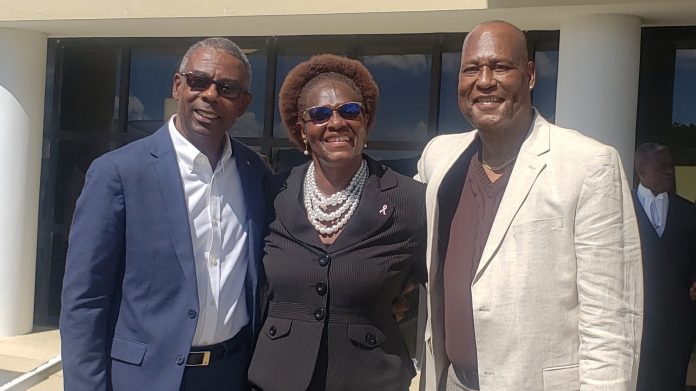By Carlena Knight
A political analyst is suggesting that in order for matters of systemic corruption to be rectified without the label of political bias, several areas of government need to be reinforced.
That was the position of Arvel Grant who was speaking on the Observer AM show yesterday about the bus conversion case involving three corruption-accused former government ministers.
Grant said that bodies like the Public Accounts Committee need to ensure a greater level of transparency.
“When you can see an objective audit practice moving towards a bipartisan discussion in Parliament at the level of the Public Accounts Committee and the Director of Public Prosecutions moving into place because those issues have been discussed and ventilated and the Auditor General would have done his or her part, then it would look more transparent if you follow that route,” he explained.
“Rather than when a party is in opposition it accuses the governing party of being corrupt and when the opposition party gets to government it does its best to, or let’s put it this way, its commitment to prosecuting or punishing people for corruption is carried out.
“When it is done that way, it appears political, it looks partisan and the truth is, oftentimes, it is really not,” Grant said.
His sentiments were echoed by another political analyst, Peter Wickham, who suggested that there should be an amendment to the Constitution regarding the Public Accounts Committee which only has one person as Chairman, the Leader of the Opposition in Parliament, Jamale Pringle.
He advised Pringle to take action to make a change.
“In Barbados, years ago, we changed it so that it would have allowed for greater flexibility in terms of the decorum because as it stands now in Antigua and Barbuda, the Public Accounts Committee cannot work unless the ABLP members cooperate and ultimately you can’t have a situation where you’re investigating yourselves.
“So, I think that Jamale Pringle in his role as Opposition Leader needs to come forward with proposals to change the constitutional laws, if necessary, to allow for himself and maybe one other Opposition member to bring the Public Accounts Committee together, have the forum sorted and then they can pursue some of these investigations in a non-partisan way – but what instead we have is a lot of quarrelling about the use of state resources,” Wickham added.
Recently, UPP Leader Harold Lovell, who was one of the defendants in the bus saga, accused the ABLP government of interfering with the case and the Director of Public Prosecutions (DPP) Anthony Armstrong of “playing politics” after Armstrong filed an application to review the High Court ruling. Armstrong declined to comment on the claim when contacted by Observer.
On Tuesday, an application was made to have a higher court review last month’s decision by Justice Colin Williams to dismiss the case against the three former Cabinet ministers who were accused of corruption, embezzlement and conversion regarding three buses received in 2008.
They had been accused of using the vehicles, donated to their then administration by South Korea, for their own personal use.
The prosecution filed the appeal to the Eastern Caribbean Court of Appeal citing 12 ways it believed the trial judge erred in law.
It is the second time the case has been dismissed against the former ministers; the first time was in the Magistrates’ Court in 2017.
Grant went on to say that the public should not be surprised when these sorts of cases occur, saying this is something that has been occurring across the region for some time.
He says politicians are investigated for corruption in many countries and it is no different in Antigua and Barbuda.
“Antiguans and Barbudans really shouldn’t be taken in by the back and forth between government and opposition on these kinds of issues,” he said.
“The fact is, globally, there is an attitude of increased intolerance to anything that looks like the abuse of public office, especially as it relates to the expenditure or use of taxpayers’ resources intended for the benefit of taxpayers – and so we should expect more and more attempts to go after people who are accused,” Grant added.
Wickham agreed with Grant and said the public should let the courts deal with such matters instead of listening to political theatrics.

